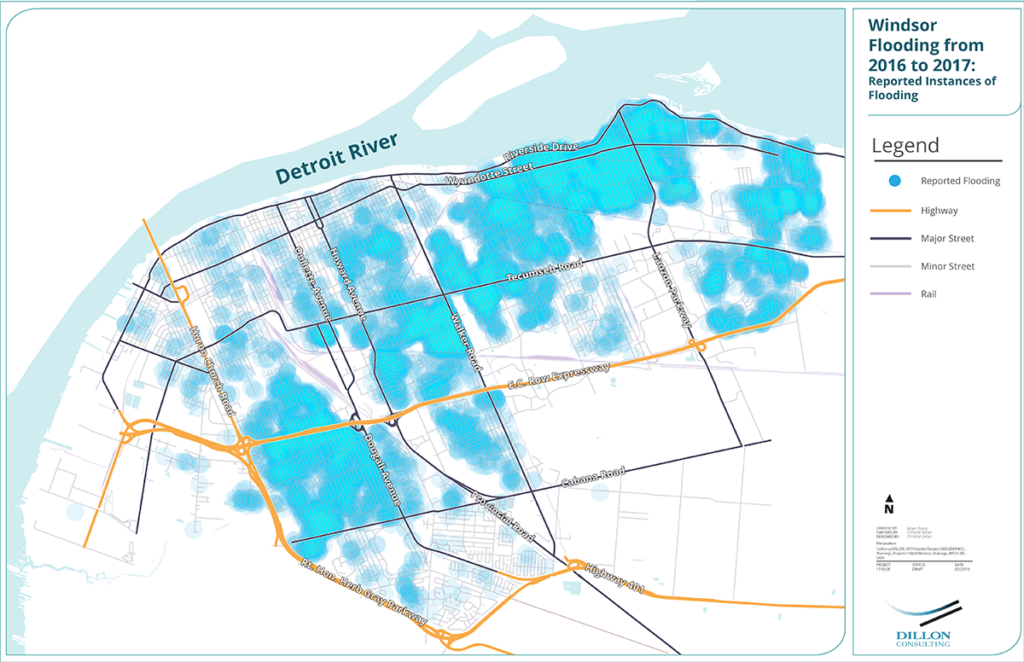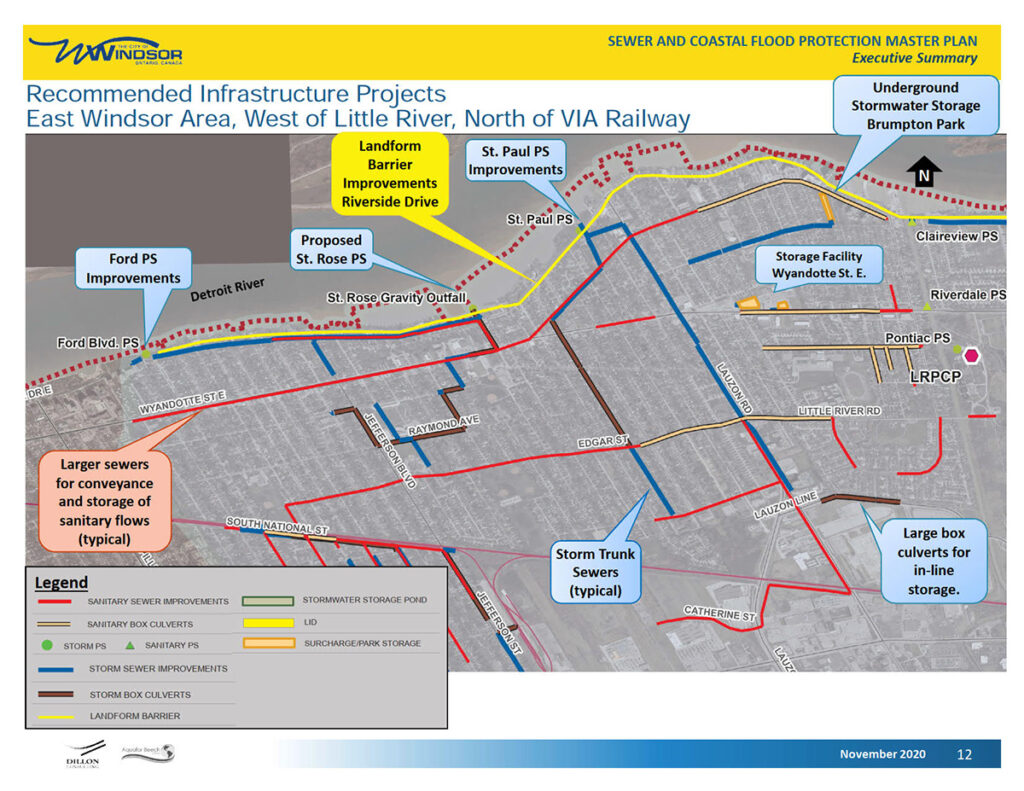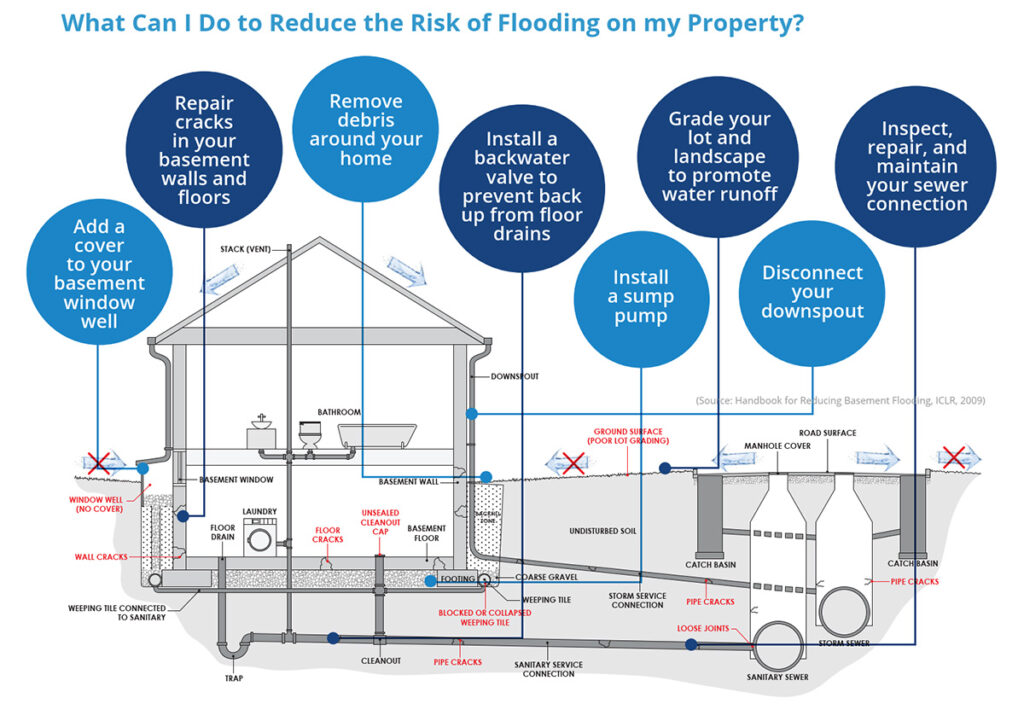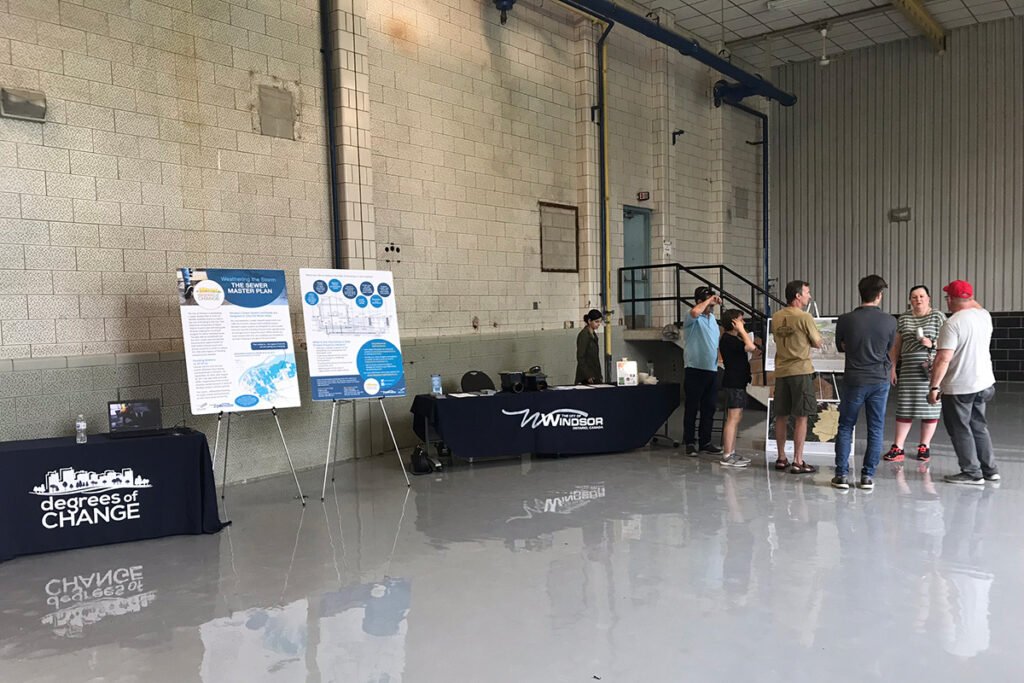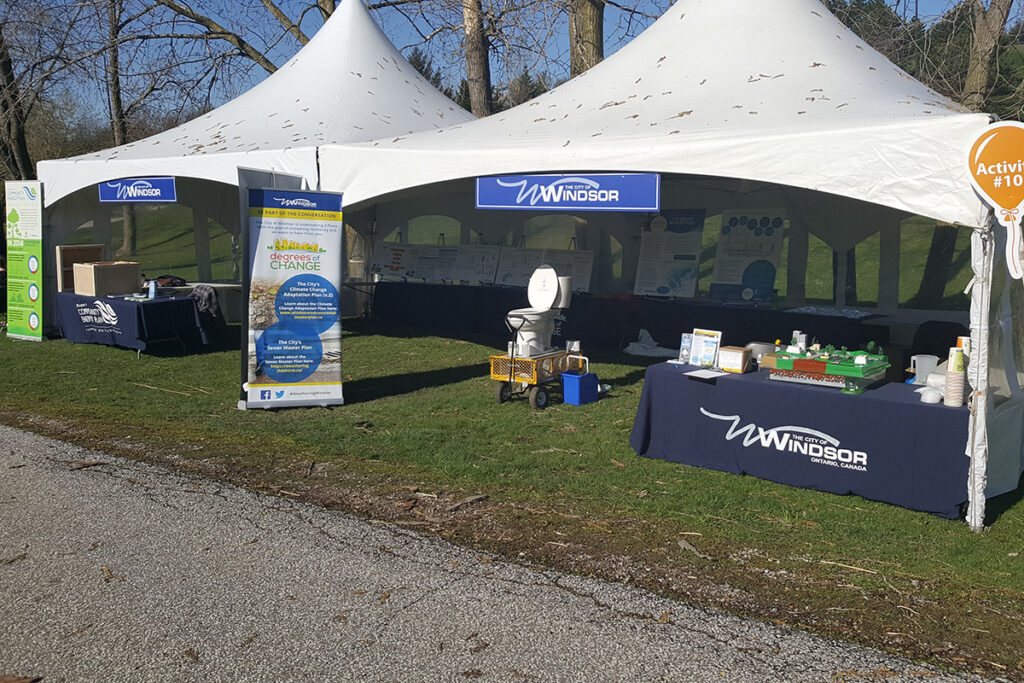Projects
Sewer and Coastal Flood Protection Master Plan – Windsor, ON
Surrounded almost entirely by water, the City of Windsor initiated the Sewer and Coastal Flood Protection Master Plan in response to several significant storm events that resulted in widespread basement and surface flooding throughout the City. Flooding has been a significant issue in the area, impacting thousands of people.
The objective of this master plan was to:
- Understand the causes of flooding
- Identify and evaluate solutions
- Complete functional design
- Engage with the public on flood solutions
- Provide an implementation strategy for recommended solutions.
The Master Plan followed the Municipal Class Environmental Assessment process, providing the framework for the public to actively help with the development of solutions. Public Consultation was a significant component of this master planning process, including many Public Information Centers, attendance at Ward and Council meetings, and participation in several local community events.
One key element of this master planning project was the implementation of a high level of service as a standard of design for future works. Through Dillon’s baseline model simulations, it was clear from the frequency of intense storms, that adhering to minimum design criteria would not provide system relief therefore an enhanced level of service was recommended. This enhanced level of service would require solutions to mitigate flooding during major storm events (85 mm rainfall) as these types of events are becoming more frequent. This criteria exceeds the current provincial standards stipulated by the Ministry of Environment Conservation and Parks (MECP) and typical municipal design standards which stipulates the use of a 1:5 year event (85 mm rainfall). Where flooding posed the highest safety risk for land uses that consist of vulnerable populations, an even higher level of service was used. This higher level of service applied an additional 40% factor which mitigated flooding for rain events up to 110 mm.
This master plan looked to develop solutions to address various types of flooding throughout the entire City of Windsor municipal boundary (almost 150 km²). The master plan proposed both municipal policies and sewer infrastructure practices that can be applied over the entire area, along with location specific solutions to address areas most at risk. A large component of the project included doing just that – determining the areas that required the most attention and focusing the project engineering analysis on those areas. To do this, in-situ sewer monitoring and rain gauge data collection helped to develop a baseline model to simulate the City’s sewer system and its reaction to various major rain events. Testing and troubleshooting the modeling to ensure that the results accurately depicted real life conditions to develop solutions was required. In addition, it was also important for the modelling to reflect observations and first-hand accounts from property owners and City staff to make sure that the model mimicked the existing system conditions as best as possible.
This project used a comprehensive calibrated sewer model to identify problem areas, test various solution scenarios and to recommend large infrastructure projects. Solutions focused on providing improvements to the storm, sanitary and combined sewer systems by improving conveyance of flow, addition of in-line storage and improving outlet capacity. It was also important to integrate provisions to account for climate change, ensuring that recommendations are sustainable and flexible to respond to additional strain resulting from climate change.
A significant achievement of this master plan was the development of solutions and preparation of materials for application for the Federal government’s Disaster Mitigation And Adaptation Fund (DMAF) which helped the City secure over $30 million dollars of funding to implement flood mitigation measures recommended by this plan.
The final report recommended $5B of infrastructure improvements for implementation in the City over the next 50+ years. Using the sewer model simulation and feedback from project workshops with the City, we also developed a project ranking strategy to objectively prioritize projects to assist with critical planning decisions.
Awards
- Association of Consulting Engineering Companies Ontario, Award of Distinction, 2023
Project Details
Project Partner: City of Windsor
Business Unit: Community Planning & Infrastructure
Service Offering: Drainage and Climate
